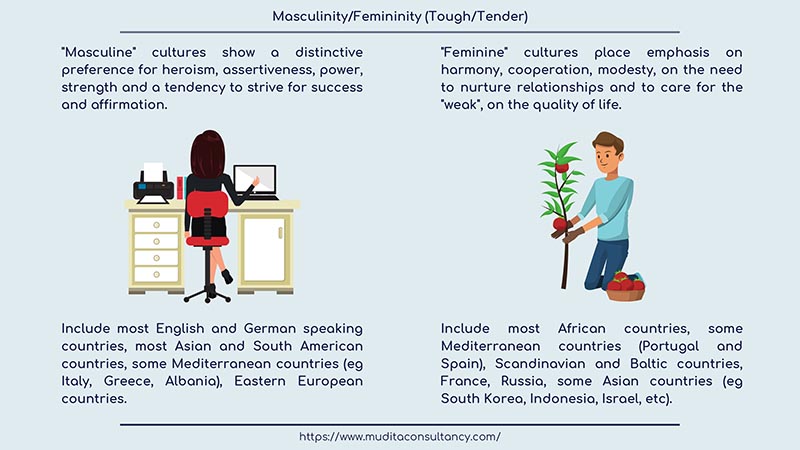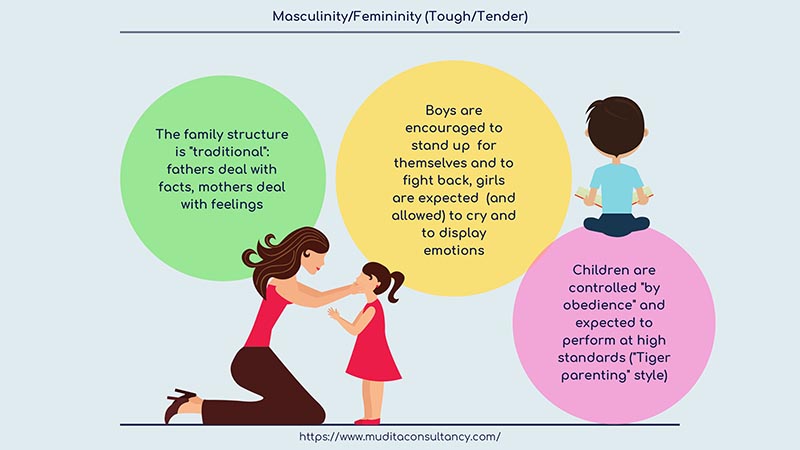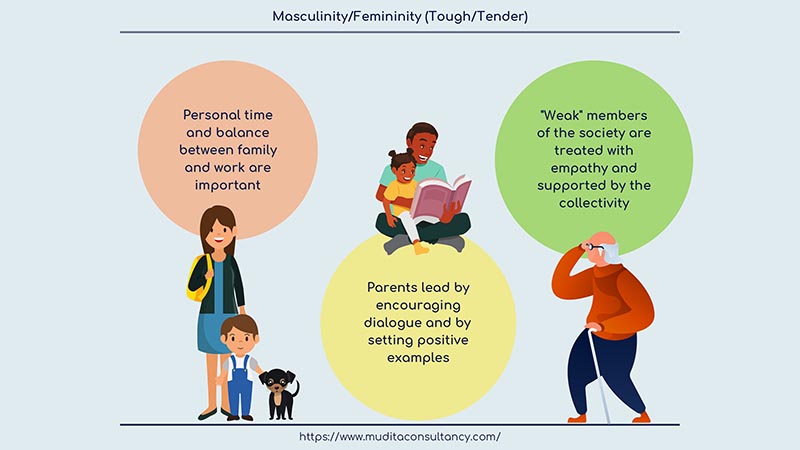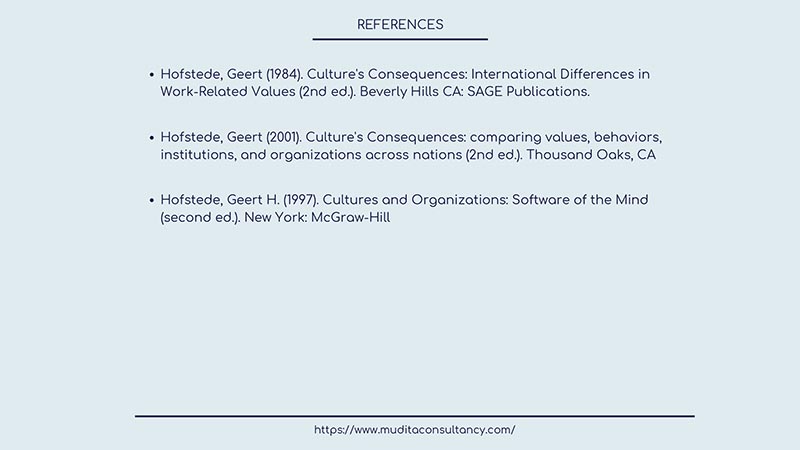Masculinity-Femininity (Tough-Tender)
I have an extremely strong, masculine mind and a feminine sensibility level, which is kind of an unusual combination. Both men and women tell me things and I can relate on two levels simultaneously
- Truman Capote -
According to Hofstede’s definitions, masculinity is “a preference in society for achievement, heroism, assertiveness and material rewards for success", while femininity represents “a preference for cooperation, modesty, caring for the weak and quality of life”.
Masculine cultures can be found in most English- (Anglo-American cluster) and German speaking countries (Germanic Europe cluster, with the exception of the Netherlands), in some of the countries that belong to the Confucian-Asia cluster (China, Japan, Hong Kong), in the Latin America cluster (Argentina, Colombia, Ecuador, Mexico, Venezuela), in some Mediterranean countries (Latin Europe cluster, with the exceptions of France, Portugal, and Spain), in Eastern European countries (Eastern Europe cluster, with the exceptions of Kazakhstan, Russia, and Slovenia), and in two of the countries that form the Middle East cluster (Morocco and Qatar).
Feminine cultures, on the other hand, seem to be the norm in most African countries (Nigeria and South Africa are the exceptions among the countries included in the Sub Saharan Africa cluster), in Northern European countries (Nordic cluster), in most of the countries that form the Southern Asia cluster (with the exception of India).
What are the main differences between masculine and feminine cultures (also defined as tough/tender cultures)?
Let’s find out.
Masculine cultures:
- Masculine cultures are ego driven and highly competitive: social status matters, money and material possessions are important. Strength and power are admired;
- Long-hours culture, hierarchical corporate structures are the norm. Workers are motivated by specific targets (individual or collective) and by being able to show what they've achieved;
- Gender roles tend to be clearly defined. The gender wage gap is usually higher in MAS societies;
- The family structure is "traditional": fathers deal with facts, mothers deal with feelings;
- Boys are encouraged to stand up for themselves and to fight back, girls are expected (and allowed) to cry and to display emotions;
- Children are controlled "by obedience" and expected to perform at high standards ("Tiger parenting" style).

Feminine cultures:
- In feminine societies, gender roles are not clearly defined and there's little or no gap between perceived "male" and "female" values;
- Individuals of both genders tend to be more cooperative than competitive. Quality relationships are a priority;
- Conflict is resolved by compromise and negotiation rather than by open confrontation;
- Feminine cultures are equality- and values-driven. Both boys and girls are encouraged to show their emotions;
- Personal time and balance between family and work are important;
- Parents lead by encouraging dialogue and by setting positive examples;
- "Weak" members of the society are treated with empathy and supported by the collectivity.
 SOURCES:
SOURCES:
- Hofstede, Geert (1984). “Culture’s Consequences: International Differences in Work-Related Values” (2nd ed.). Beverly Hills CA: SAGE Publications
- Hofstede, Geert H. (1997). “Cultures and Organizations: Software of the Mind” (second ed.). New York: McGraw-Hill
- Hofstede, Geert (2001). “Culture's Consequences: comparing values, behaviors, institutions, and organizations across nations (2nd ed.)”. Thousand Oaks, CA
- The Globe Project, Online: https://globeproject.com/








